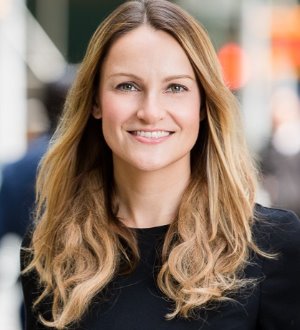Best Lawyers in New York, United States for Art Law
Practice Area Overview
Art intersects with law in a multitude of forums and disciplines. The broad classification of "art law" encompasses the body of law applied to fine art and artists, and also often extends to cultural property, collectibles, multiples, and memorabilia.
Art attorneys advise on the various art specific laws that exist at the state and federal level and affect the relationships and transactions among collectors, artists, dealers, and other art world participants. Additionally, an attorney in this area understands that the practice of art law frequently involves application to fine art transactions and disputes of other areas of law, such as contract law, trust and estate law, tax law (including exempt organizations), property law, civil procedure, tort law, constitutional law, and customs laws - but with more specific issues considering the unique environs, conflicting interests, and operations of the mostly unregulated and opaque art market.
Attorneys in this field advise regularly on artists' legal rights and protections (including artist-dealer relationship, First Amendment rights, copyright and trademark (including fair use), moral rights, resale royalty rights, and statutory artist protections).
An art lawyer's clients include private collectors, private art foundations, artists, artist foundations, museums, galleries, and/or art dealers, who seek legal counsel relating to the creation, destruction, purchase, sale, consignment, auction, movement, ownership, financing, loan, authentication, export/import, display, reproduction, insurance, taxation, storage, charitable gifting, and/or theft, restitution, and recovery, of fine art. Attorneys in this field also structure, review, negotiate, and draft a wide range of agreements specific to the unique environs of the art world, including art purchase and sale agreements; bills of sale; escrow agreements; agreements for the conservation, restoration or repair of art; appraisal agreements; collector and exhibition insurance policies and unique art endorsements; licensing agreements; agency agreements; art advisor and consulting agreements; review on approval agreements; auction consignment agreements including auction guarantees and advances; private sale consignment agreements; artist/dealer agreements; loan agreements with museums and galleries for exhibition of art; deeds of gifts and promised gift agreements with museums for donation of art and or funds; and agreements for commissions of public and private art. Some attorneys in this field may be in-house at museums, auction houses, and galleries, instead of private practice.
In addition to the transactional matters described above, the unregulated art market and its lack of transparency (including frequent use of agents for undisclosed principals), and inherent conflicts of interests, lead to an increased risk of art-specific litigation. Some art attorneys therefore have developed a more particular litigation based practice, and they regularly advise on art world contract disputes, enforcement of artist rights, restitution claims for stolen or looted art including procedural challenges, art fraud and forgeries, authentication challenges, and ownership disputes, as examples.
As noted, art law often encompasses matters involving cultural property (antiquities, artifacts, and objects of historical, religious, ethnological, or archeological importance). In addition to the general areas of art law mentioned above, attorneys whose practice extends to the cultural property arena are also familiar with legal issues unique to cultural objects (as well as to protected flora and fauna that is sometimes used in art, like feathers, skeletons, ivory, and wood from protected species), such as specific domestic cultural property laws governing possession and sale of, and bi-lateral and multi-lateral treaties and conventions governing international trade in, such objects, as well as U.S. and foreign laws on seizure, smuggling, and repatriation of cultural objects.
Many of today's art world transactions often cross international boundaries and include global parties, whether a purchase and sale between a buyer and seller (and/or their agents) located in different countries (with or without the art located in another country), or a loan of a work of art from a U.S. resident to a foreign museum, or the consignment of a work of art to an auction house overseas, art lawyers practicing in this field are also aware generally of relevant foreign law issues that may arise in such transactions, including export/import requirements and restrictions, foreign moral rights protections (which are usually broader than the U.S.), VAT and other foreign taxes and assessments and applicable exemptions or bond alternatives, and anti-seizure protections.
Lawyers who have a subscription to profiles appear first.
Would you like to claim your lawyer profile?
Contact UsOur Methodology
Recognition by Best Lawyers is based entirely on peer review. Our methodology is designed to capture, as accurately as possible, the consensus opinion of leading lawyers about the professional abilities of their colleagues within the same geographical area and legal practice area.
The Process
Best Lawyers employs a sophisticated, conscientious, rational, and transparent survey process designed to elicit meaningful and substantive evaluations of the quality of legal services. Our belief has always been that the quality of a peer review survey is directly related to the quality of the voters.





